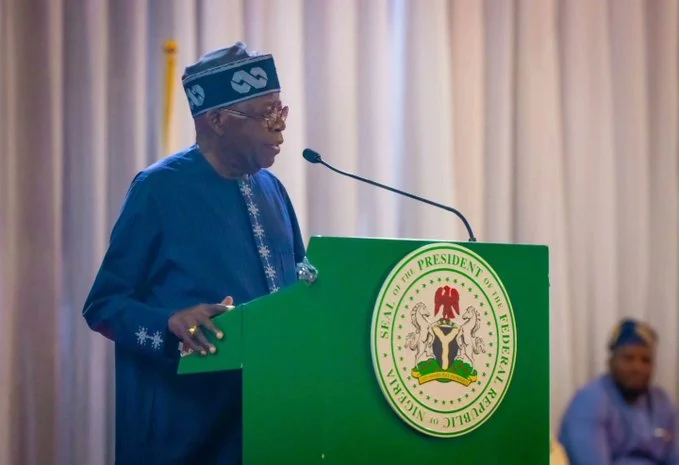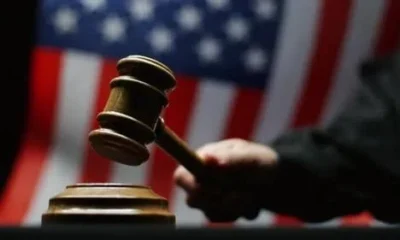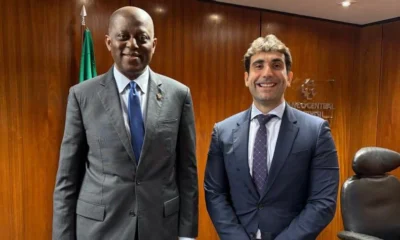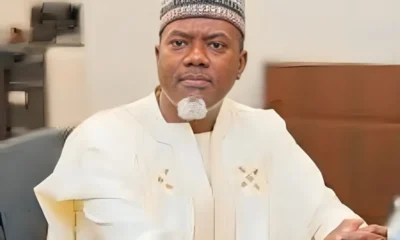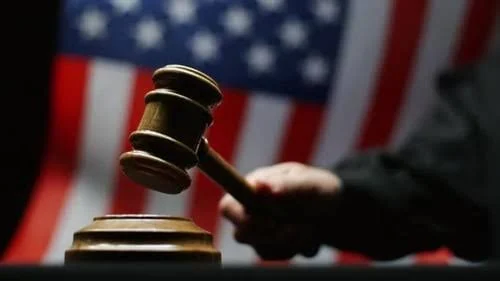There are indications that President Bola Tinubu is preparing to transmit the names of ambassadors-designate to the Senate for screening and confirmation. The list will include nominees who are set to serve as Nigeria’s ambassadors and high commissioners to various countries and multilateral organizations.
Government officials with knowledge of the matter have informed our correspondent that the names of the nominees will be transmitted in early December. This development follows 14 months after 83 ambassadors were recalled in September 2023.
Nigeria currently has 109 missions worldwide, comprising 76 embassies, 22 high commissions, and 11 consulates.
A report from November 21, 2024, had indicated that the Federal Government had begun deploying consular officers to diplomatic missions globally, ahead of the expected release of the ambassadorial list.
On Wednesday, President Tinubu left Abuja for a three-day state visit to France, at the invitation of President Emmanuel Macron. Afterward, he is expected to visit South Africa for a state visit, marking his second trip to the country after attending President Cyril Ramaphosa’s inauguration last June.
Upon assuming office in May 2023, President Tinubu reassessed Nigeria’s foreign policy, which led to the recall of 83 career and non-career ambassadors. These envoys were instructed to return to Nigeria by October 31, 2023.
The Minister of Foreign Affairs, Yusuf Tuggar, stated that the ambassadors served at the President’s behest in their respective host nations, and it was the “prerogative to send or recall them from any country.” However, 14 months later, they have yet to be replaced, leaving a diplomatic void.
Section 171(2)(1c) and Subsection 4 of the 1999 Constitution (as amended) stipulate that appointments to the office of ambassador, high commissioner, or other principal representatives of Nigeria abroad must be made by the President and shall not take effect unless confirmed by the Senate.
On March 25, Tuggar confirmed that the Ministry of Foreign Affairs had compiled and submitted the names of prospective career diplomats to the President for consideration.
“We have collated everything on our part and forwarded it to Mr. President,” Tuggar said.
Although it remains unclear whether the nominees are political or career diplomats, indications suggest that most are career diplomats. Career diplomats are typically promoted through the Foreign Service, while political appointees are often chosen by the President.
The President’s Special Adviser on Information and Strategy, Bayo Onanuga, previously spoke about the process, stating that nominations must undergo a thorough review before a final list is transmitted to the National Assembly. “Don’t forget that the ambassadorial list has two components. There are career ambassadors and political ambassadors. The foreign affairs list and the consolidated list will still go through certain processes before it is released,” he said.
A government official, who requested anonymity, confirmed that the appointment of ambassadors is imminent. “Ambassadorial appointments require approval from the National Assembly. So, the list will be submitted to the Senate President, who will then announce it. But it has not been submitted yet. Yes, I can confirm that. Once submitted to the Senate President, they will publish it the following day. So, that means it would be until he (President Tinubu) comes back from France and South Africa because he is going to South Africa from France for a state visit. After that, he will release it,” the official said.
In April 2024, the government appointed 12 consuls-general and five chargés d’affaires to represent Nigeria in 14 countries, but these interim appointments have failed to fill the leadership vacuum in key missions. Consuls-general and chargés d’affaires can carry out routine administrative duties and oversee embassy operations, but they lack the diplomatic authority to engage at the highest levels, such as with heads of state or in critical international negotiations.
On May 28, the foreign affairs minister cited a lack of funds as the main reason for the delay in appointing new ambassadors. A few days later, former Ministry of Foreign Affairs spokesperson Eche Abu-Ode said any new ambassadorial appointments would depend on budget allocations.
A senior official in Nigeria’s Foreign Service, who is familiar with the developments, stated that while the names of the appointees would be released in early December, they will not begin their diplomatic duties for several months. The official explained, “This is the last week of November. Within the first week of December, it should be out. It’s long overdue. What happens is that the Senate will screen those appointed.”
“There’s usually an agreement; it’s like one president writing to another president informing them that ‘I am sending such and such a person as my principal representative to your country.’ The other country will write back saying they have accepted such a person. That ambassador will now take a letter of credence to the host president. Once a foreign government receives an agreement, it does serious background checks on the persons nominated for ambassadorial roles to know the person’s standing and to ensure that they don’t have inimical intentions for the country. But we haven’t gotten to that stage yet.”
“Those nominated have to be announced first. When they are announced, it will take a minimum of three months and a maximum of six months for them to begin their tour of duty. This depends on the country. For instance, if Nigeria wants to send an ambassador to the Niger Republic, given the current state of the relationship, Niger would understandably take its time to run this check.”
On the identities of the nominees, sources suggest that a senior member of the President’s media team may be among those appointed. “The ambassador thing is coming up very soon. It’s coming soon and it’s going to be announced in about a week. Maybe not all the countries, it’s going to be African countries first. But it will soon be released. What I’m hearing is that one of the presidential media aides is likely going to be made an ambassador to one of those African countries. If there’s any announcement, his name will be mentioned,” said a senior State House official close to the President.
Reports also suggest that a founder of a top-tier bank, a former Deputy Governor of Lagos State, and the Speaker of a House of Assembly in the North are being considered for ambassadorial roles.
Another official noted that the prolonged delay in appointments has created a diplomatic void, leaving key foreign missions without proper leadership. “It has been a long time coming. Many decisions are on hold because our missions and embassies are still expecting new diplomats. Major meetings are happening around the world without us because we have no representation at such levels. The President cannot be everywhere at the same time. The minister of foreign affairs cannot do everything by himself,” the official said, requesting anonymity due to the sensitivity of the matter.
Meanwhile, former diplomats have expressed concern over the eight-month delay in posting ambassadors, warning that Nigeria’s absence from the international stage could have long-term consequences for its global reputation.
Dr. Ogbole Amedu-Ode, a former Nigerian Ambassador to Mexico and Singapore, stated, “In a situation of negotiations taking place at the highest level of the mission hierarchy, it means that those missions that do not have their principal envoys would be placed at a disadvantage of non-representation. However, it is not too much of an issue in the practice of diplomacy. This is because, in the absence of a principal envoy of ambassadorial rank, the Chargés d’affaires will hold watch until a substantive head of mission arrives. Government and governance, which extends to diplomacy and diplomatic practice, have continuity as one of their hallmarks.”
Similarly, Ambassador Rasheed Akinkuolie, a retired consul to Cameroon and delegate to the World Expo and Economic Development Centre in Paris, expressed concern that host governments may question Nigeria’s delay in replacing its recalled ambassadors, seeing the prolonged absence as a sign of instability. He said, “It is not the best option not to have resident ambassadors at a post. Chargés d’affaires may not be able to relate with host governments at the highest level, which includes heads of state.
A chargé d’affaires can generally only relate with foreign ministries and other officials.”
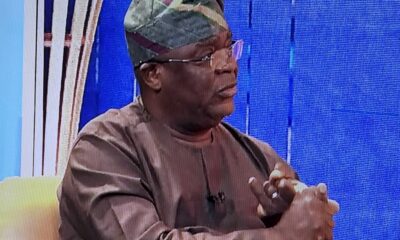
 BIG STORY4 days ago
BIG STORY4 days ago
 BIG STORY5 days ago
BIG STORY5 days ago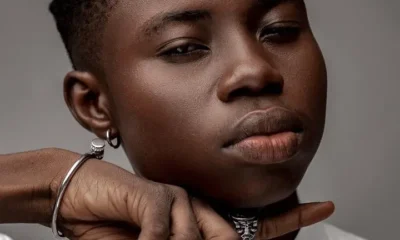
 BIG STORY3 days ago
BIG STORY3 days ago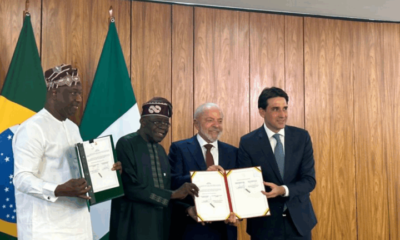
 BIG STORY5 days ago
BIG STORY5 days ago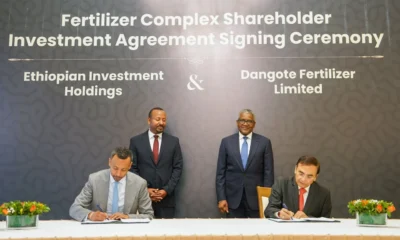
 BIG STORY3 days ago
BIG STORY3 days ago
 BIG STORY5 days ago
BIG STORY5 days ago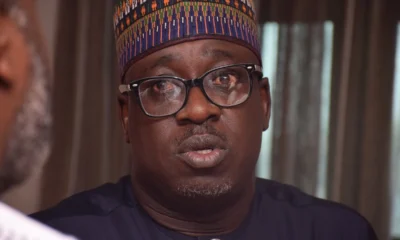
 BIG STORY3 days ago
BIG STORY3 days ago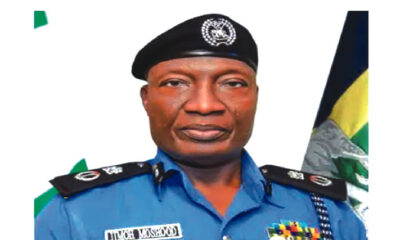
 BIG STORY2 days ago
BIG STORY2 days ago




